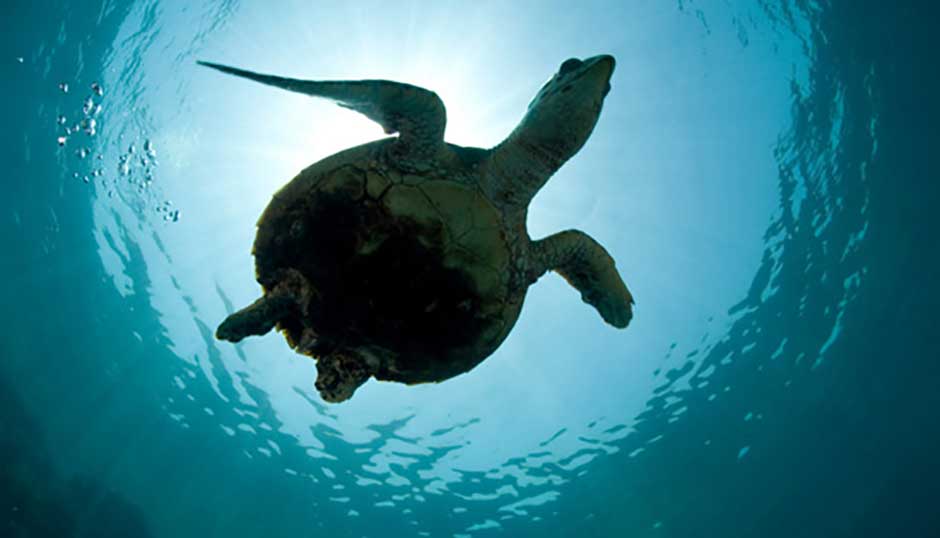It is not only dogs and dolphins who have shown their reverence and devotion to human life by going to enormous lengths to save it. The animal kingdom, it turns out, is full of remarkable samaritans.
In 1975, a desperate shipwreck victim off the coast of Manila was stupefied to see a giant sea turtle swimming towards her, seemingly offering its aid. The floundering woman climbed aboard the turtle, which then did something turtles supposedly “never do.” Sea turtles spend most of their time underwater, but this one must have somehow known the poor woman needed constant support to survive, and must also have wanted very much to take care of her. It proceeded to stay at the surface for two full days, going without food itself, so it could continue to carry her and keep her alive. When human rescuers finally appeared: “Eyewitnesses thought the woman was floating on an oil drum until she was safely on board – whereupon the ‘oil drum’ circled the area twice and disappeared.”
To be taken for an oil drum might not have surprised the turtle all that much. You see, for many years, turtles were not legally recognized as animals in the U.S. One of the earliest crusaders for animal protection, Henry Bergh, found this out when he tried to stop the torments visited upon green turtles. These great animals, which have been known to live for hundreds of years, and grow to 600 pounds or more, are sought after as a status source of soup and steak for the wealthy, with the children being eaten when they weigh only about 50 pounds. Bergh found that the turtles were transported by ships from the tropics to the Fulton Fish Market in New York. En route, the turtles did not exactly travel first class. They lay on their backs for several weeks, out of the water, with nothing to eat or drink, like so much upside-down luggage. They were held in place by ropes strung through holes punched in their flippers.
Bergh did everything he could to halt this activity, but when he brought the perpetrators to court, the judge acquitted them on the grounds that a turtle was “not an animal within the meaning of the law.” Accordingly, ruled the judge, even the barest minimum of protection against cruelty that was afforded animals by the law at that time could not be applied to turtles.
Most of us, like that judge, are conditioned by a culture that thinks of animals as mere machinery, and could never imagine that a sea turtle would be capable of saving a human life.
